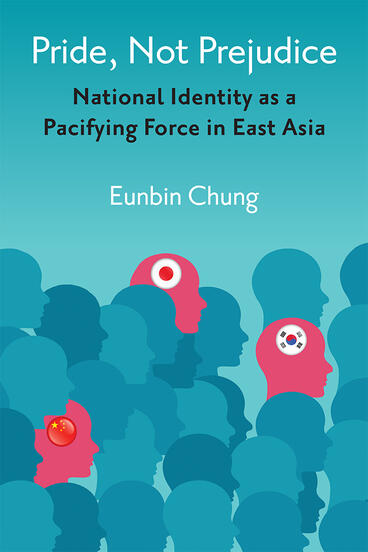Pride, Not Prejudice
National Identity as a Pacifying Force in East Asia
Nationalism as a path to international peace
Description
As shown by China’s relationship to Japan, and Japan’s relationship to South Korea, even growing regional economic interdependencies are not enough to overcome bitter memories grounded in earlier wars, invasions, and periods of colonial domination. Although efforts to ease historical animosity have been made, few have proven to be successful in Northeast Asia. In previous research scholars anticipated an improvement in relations through thick economic interdependence or increased societal contact. In economic terms, however, Japan and China already trade heavily: Japan has emerged as China’s largest trading partner and China as second largest to Japan. Societal contact is already intense, as millions of Chinese, Koreans, and Japanese visit one another’s countries annually as students, tourists, and on business trips. But these developments have not alleviated international distrust and negative perception, or resolved disagreement on what constitutes “adequate reparation” regarding the countries’ painful history.
Noticing clashes of strong nationalisms around the world in areas like Northeast Asia, numerous studies have suggested that more peaceful relations are likely only if countries submerge or paper over existing national identities by promoting universalism. Pride, Not Prejudice argues, to the contrary, that affirmation of national identities may be a more effective way to build international cooperation. If each national population reflects on the values of their national identity, trust and positive perception can increase between countries. This idea is consistent with the theoretical foundation that those who have a clear, secure, and content sense of self, in turn, can be more open, evenhanded, and less defensive toward others. In addition, this reduced defensiveness also enhances guilt admission by past “inflictors” of conflict and colonialism. Eunbin Chung borrows the social psychological theory of self-affirmation and applies it to an international context to argue that affirmation of a national identity, or reflecting on what it means to be part of one’s country, can increase trust, guilt recognition, and positive perception between countries.
Eunbin Chung is Assistant Professor of Political Science at the University of Utah
Reviews
“Chung makes important and fascinating points with large implications about how states can overcome elements of national identity that emphasize the distinctiveness, and often superiority, of the state over relevant others.”
—Joslyn Barnhart, Wesleyan University
- Joslyn Barnhart
“. . . advances a novel, even counterintuitive, solution to a frustratingly enduring problem among Northeast Asia’s states and, most especially for the United States since two of the three countries are its most important regional allies.”
—Bridget L. Coggins, University of California, Santa Barbara
- Bridget L. Coggins
"This intriguingly fresh idea—that national identify can serve as a pacifying rather than a divisive force—should be welcome news because it is highly unlikely that any of these regional powers will ever abandon their well-developed national pride. This book paves new paths forward for international relations in East Asia. Highly recommended."
- CHOICE
—CHOICE
Winner: American Library Association (ALA) Choice Outstanding Academic Title
- ALA Choice Outstanding Academic Title
"Pride, Not Prejudice offers an innovative approach to the role of national identity and
- Flavia Lucenti
collective memory in east Asia. . . the book is a recommended read for students and scholars interested in east Asia and who are already familiar with social psychology."
—International Affairs

